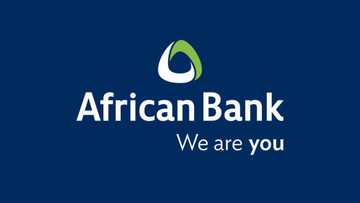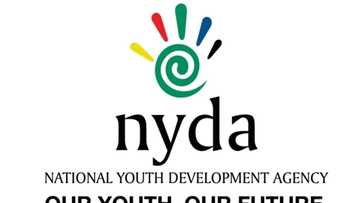10 best small business funding sources in South Africa today
One of the requirements for a successful small business is sufficient funding. Without enough capital, small businesses encounter challenges in meeting their running costs. Luckily, there are numerous small business funding sources in South Africa that provide a wide range of financial products and services. These come in the form of grants, loans, and business subsidies, amongst many more. Which are these sources, and what do they offer?

Source: UGC
South Africa is, without a doubt, one of the top-ranking economies in Africa, making it ideal for small business startups. This partly explains the large number of institutions offering one or more forms of financial assistance to small businesses.
How to get small business funding in South Africa
Here is where to get funding for a small business in South Africa.
1. DTI funding for small business
Are you looking for small business funding from the South African government? One of the best options to consider is the DTI fund. It is a collection of funding schemes that the Department of Trade and Industry (DTI) makes available to South Africans with new business ventures and those with already existing ones.
Much of the funding schemes take the form of loans and grants, with a few being set up as cost-sharing incentives.
Some of the options under the DTI fund include the Agro-Processing Support Scheme (APSS), Automotive Investment Scheme (AIS), Business Process Services (BPS), Support Program for Industrial Innovation (SPII), the Critical Infrastructure Program (CIP), and the Manufacturing Investment Programme (MIP).
Those seeking DTI funding for a small business can begin their applications by visiting the department's official website.
2. NYDA Grant Program

Source: Getty Images
The NYDA (National Youth Development Agency) Grant Programme is designed to provide young entrepreneurs with an opportunity to access both financial and non-financial business development support to enable them to establish or grow their businesses.
Besides the financial assistance, the non-financial services provided by the NYDA include mentoring, cooperative development, business management programmes, and consultancy services.
The maximum amount of funding for a small business one can receive in a single cycle is R250,000.
3. Bank and SACCO loans
When trying to figure out how to get funding for a small business, banks and SACCOs almost always come to mind. There are numerous South African SACCOs and banks that offer loans to individuals and SMEs (Small and Medium Enterprises).
The likes of Nedbank, Standard Bank, and FirstRand bank limited offer capital to entrepreneurs who have worthwhile ideas with promising futures.
Still, there are criteria that each of these financial institutions has laid down. Any applicant seeking funding must meet these requirements. One of the biggest drawbacks for small business owners is usually the significantly high interest rates that these SACCOs and banks charge.
Some might also require some form of collateral before processing the loans.
4. Small Enterprise Finance Agency (SEFA)
This agency was set up to foster the establishment and growth of Small and Medium Enterprises. SEFA provides development finance to SMEs and Cooperatives that are not able to attract commercial credit.
SEFA grants, loans, and other forms of business development financing range between R50,000 and R5 million.
5. Isivande Women's Fund (IWF)

Source: Getty Images
This is one of the South African government's financial assistance schemes. It is an exclusive fund that aims to accelerate women's economic empowerment by providing more affordable, usable, and responsive finance than is currently available. The IWF is targeted at businesses that are wholly or majorly women-owned.
The fund provides financing ranging from R30,000 to R2 million. An individual or business seeking the Isivande Women's Fund begins by making an application that fund managers review before the funds can be released.
6. Khula Enterprise Finance
Khula is a South African state-owned enterprise that was established in 1996 to focus on promoting and developing small and medium enterprises (SMEs). While the body does not give out loans and grants directly, it makes it possible for deserving individuals and enterprises to get funding from other South African financial institutions.
Besides providing government small business funding, the body also provides mentorship to entrepreneurs, helping them to manage their businesses successfully.
7. South African Micro Finance Apex Fund
This fund is under the South African Ministry of Economic Development. The body provides financial services to small-scale entrepreneurs living in rural and outer urban areas. It does not lend directly to business owners and instead links with existing institutions in the community to help the business owners access funds.
The South African Micro Finance Apex Fund facilitates access to three financial products, namely the micro-credit fund, the capacity-building fund, and the savings mobilization fund.
8. Black Business Supplier Development Programme
This is another funding program under the South African Department of Trade and Industry (DTI). It was designed to offer grants in a cost-sharing scheme to black-owned businesses (both startup and existing). Most black-owned companies with a significant representation of black managers on their management team qualify for the grant.
The fund provides grants up to a maximum of R1 million. Here is how each grant is structured.
- 80% for tools, machinery, and equipment on a half-half cost-sharing basis.
- 20% for business development and training interventions.
9. The Umsobomvu Youth Fund

Source: Getty Images
This fund was initially designed to help South African youth set up, expand, and develop their businesses by providing financing and teaching them essential business skills. Today, its scope is significantly wider and now includes women beyond the 35-year age limit.
One of the fund's biggest products is the Franchise Fund, which helps young people to start and maintain their businesses through loans and a voucher system. Other services include entrepreneurship education training, cooperative training, business consultancy services, and graduate development training.
10. Small Enterprise Development Agency (SEDA)
SEDA is a state-owned development agency dedicated to helping businesses start, thrive, and expand. The agency also provides free small business support services that are personalized to each business and provided by experienced business advisors.
Other notable mentions
Here are some other funding sources worth exploring.
- Venture capital: Venture capital investors seek private equity in a company in exchange for investing in startups. These investors typically focus more on startups instead of established businesses.
- Crowdfunding: This is a financing method that sources funds from a pool of interested investors. The funds can be in exchange for equity, debt, or donations.
- Friends and family: A small business owner can always turn to their family and friends for finances.
How to apply for funding for a small business in South Africa

Source: UGC
Are you trying to figure out how to apply for small business funding? The easiest way is to start by visiting the official websites of each funding source listed in the guide. The sites have sufficient information regarding the requirements, processes, and limits.
Various state and private agencies provide small business funding in South Africa. These entities vary in their structures and the types of financial packages they provide to small business owners.
DISCLAIMER: This article is intended for general informational purposes only and does not address individual circumstances. It is not a substitute for professional advice or help and should not be relied on to make decisions of any kind. Any action you take upon the information presented in this article is strictly at your own risk and responsibility!
READ ALSO: How to deal with debt collectors: What they can and cannot do in 2022
Briefly.co.za recently published a guide on how to deal with debt collectors. Recently, there have been lots of harassment incidents from debt collectors, often involving people who do not really know their rights and the extent to which debt collectors can act according to the law.
Understanding the legal framework governing these individuals and agencies is essential. Read on to discover crucial information about debt collection agencies.
Source: Briefly News

Favour Adeaga (Lifestyle writer) Dr. Favour Adeaga is an author, speaker, and coach. He graduated with a degree in Mass Communication from The Polytechnic, Ibadan, Nigeria. He did his internship at The Nation Newspaper and taught diploma students in Newspaper and Magazine courses at the Nasarawa State University, Keffi. He has curated the facts and life hacks category since 2018. Dr Favour is the author of several books available on Amazon. He currently lives in Nigeria. Email: favouradeaga@gmail.com

Jackline Wangare (Lifestyle writer) Jackline Simwa is a content writer at Briefly.co.za, where she has worked since mid-2021. She tackles diverse topics, including finance, entertainment, sports, and lifestyle. Previously, she worked at The Campanile by Kenyatta University. She has more than five years in writing. Jackline graduated with a Bachelor’s degree in Economics (2019) and a Diploma in Marketing (2015) from Kenyatta University. In 2023, Jackline finished the AFP course on Digital Investigation Techniques and Google News Initiative course in 2024. Email: simwajackie2022@gmail.com.






